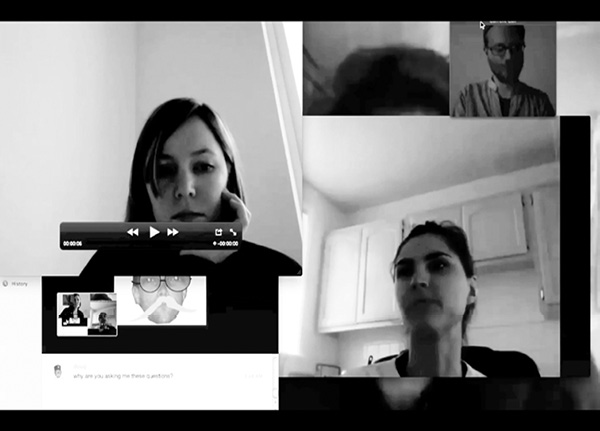
CONTROLLING_CONNECTIVITY
first performed on
November 2, 2011
Art Laboratory Berlin, Berlin, Germany
performed once in 2011
GRETTA LOUW
Berlin, Germany
824036691g824036691r824036691e824036691t824036691t824036691a824036691.824036691e824036691l824036691i824036691s824036691e824036691.824036691l824036691o824036691u824036691w824036691@824036691g824036691m824036691a824036691i824036691l824036691.824036691c824036691o824036691m
controllingconnectivity.tumblr.com
CONTROLLING_CONNECTIVITY
GRETTA LOUW
Of recent technological advances, the internet represents the largest capacity to create change. Offering unlimited access to information and radically new modes of communication, it has penetrated almost all aspects of contemporary society. Pervasive, constant mobile access to online social networks has completely changed our concept of urgency and “connectedness.” How are the radical shifts brought about by this technology affecting society, culture, and collective consciousness-and what are the consequences of constant connectivity on psychological functioning?
“Controlling_Connectivity” was a durational performance exploring the psychological impacts of our growing reliance on the internet and the psychological burden associated with being perpetually available. Taking these notions to their logical extreme as a sort of psychological experiment, I spent 10 days living in complete physical isolation in a Berlin gallery, without natural light, being available 24 hours per day for contact via various online social media platforms to anyone who chose to contact me. During the performance it became clear that the content of the discussions with participants was as important as the changes in my psychological state. These discussions became like a sociological survey of an extremely broad range of interest groups and internet subcultures, ranging from extreme Second Life users/addicts to first time social media users. Also the quality of the interactions was telling; conversations with strangers were accompanied by a (false?) sense of closeness, and unpleasant conversations, where “real world” boundaries were overstepped, felt shockingly intimate, too personal. In contrast, talking with close friends felt unsatisfying, distant, artificial.
It leads me to question the nature of online communication, wondering if, as one participant suggested, it “flattens” human interaction, giving everything a patina of uniformity, between a constructed intimacy and an unbreachable distance-and if so, what consequences does this have? In terms of the psychological effects, psychometric testing taken both pre- and post-performance, indicated measurable increases in anxiety and stress, as well as a substantial drop in measures of well-being. Qualitatively speaking there was also a noticeable shift in speech and behaviour (increased pauses, slurring, and erratic speech and patterns). On the other hand I experienced no loneliness, despite being completely physically isolated. The performance and resulting video and installation pieces raise many pertinent questions about the quality of communication and relationships over the internet, and how these are affecting our psychological and emotional health.